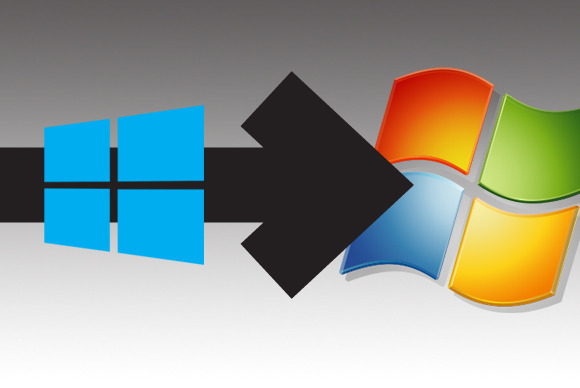 NEWS
NEWS
 NEWS
NEWS
 NEWS
NEWS
![]() Unbelievably, or so it may sound, that really does look like the best response Microsoft can come up with as it desperately tries to boost sales of its failing Windows 8 operating system. Basically, Microsoft has decided to allow users to ‘revert back’ to Windows 7 in its upcoming Windows Blue update, pegged to arrive sometime this summer.
Unbelievably, or so it may sound, that really does look like the best response Microsoft can come up with as it desperately tries to boost sales of its failing Windows 8 operating system. Basically, Microsoft has decided to allow users to ‘revert back’ to Windows 7 in its upcoming Windows Blue update, pegged to arrive sometime this summer.
According to a report from ZDNet, Microsoft’s ‘great idea’ is to give users the option of booting directly to desktop, allowing them to skip past the much-derided Metro interface that acts as the OS’s current launch pad.
But the Redmond firm’s innovation doesn’t stop there – their geniuses are also considering bringing back the Start Button as an option for Windows 8, in an effort to address one of the biggest gripes among those who have actually used it.
These plans haven’t been officially confirmed, but ZDNet points to a couple of different forums that raised the possibility of this happening, as well as an “unnamed source”. These claims are backed up by The Verge, which mentions references to a “CanSuppressStartScreen” option in the registry of one of Windows Blue’s early builds that was discovered on the My Digital Life forum.
Further evidence of this move was spotted by PC World, which reported stumbling across additional signs of a boot-to-desktop option found within a leaked version of Windows Blue.
Reports of the Start Button’s return to grace are less conclusive. ZDNet says that Microsoft is currently considering the idea, while The Verge claims that Microsoft is more likely to stick with its “hot corners” that allow users to bring up the modern Charms Bar and Start menu with a simple swipe of their touchscreen.
![]() By bringing back the traditional Start Menu, this would allow users to avoid the new “tiley” interface entirely, as it brings back full control of the PC’s functionality back to the desktop mode, something that many would argue is its rightful place anyway.
By bringing back the traditional Start Menu, this would allow users to avoid the new “tiley” interface entirely, as it brings back full control of the PC’s functionality back to the desktop mode, something that many would argue is its rightful place anyway.
In other words, what we would have is Windows 7 again in all but name, albeit with touchscreen controls for anyone that owns a modern Windows 8 laptop.
From one perspective, such a move would make sense as Microsoft seeks to get business users to adopt its new OS without having to make any major alterations to their workflow. But on the other hand, reverting backwards is a clear admission from Microsoft that a great deal of its customers despise the new interface and don’t want anything to do with it.
Publicly, Microsoft continues to insist that most people “quickly adopt the new features of Windows 8”, but speaking from experience I can hardly count myself as one of them. I actually do use Windows 8, and spend about 99% of my time in desktop mode, only very occasionally switching to the Metro interface and using the apps when there’s a need to do so (not very often). Perhaps I’d be more inclined to use Metro if I wasn’t a writer and didn’t need to use Word all the time, but if that was the case then in all likelihood I wouldn’t have bought a laptop anyway.
That basically sums up the predicament Microsoft is in right now. The majority of laptop buyers these days use their machines for work because Windows (at least, on desktop) is still the only real platform to do so, but no one’s going to get any work done with the childish Metro interface. This could change if Microsoft brings out Metro-style Office applications along with Windows Blue (they have been rumored), but unless these offer the same level of functionality as their desktop varieties, it’s unlikely that anyone will be greatly impressed.
THANK YOU